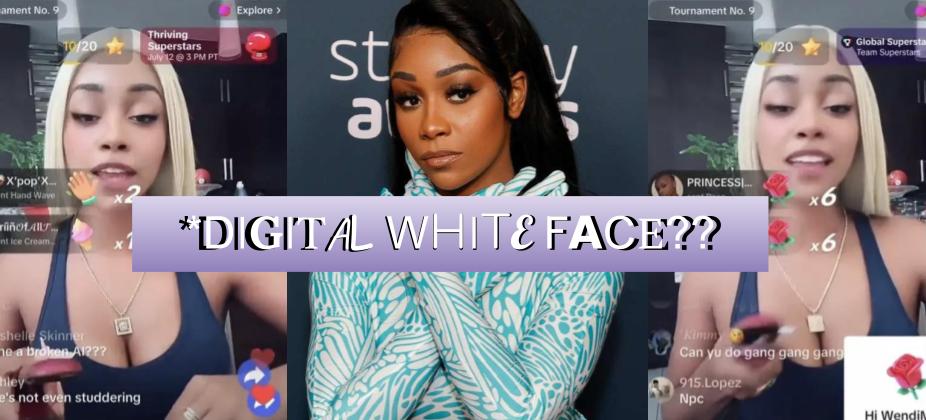
by Lorenzo Holder III
THE VALUE OF SKIN TONE
That you shouldn’t judge a book by its cover is an old adage that should be familiar to everyone but until I moved to Malaysia I had not been aware of the fact that a books cover could be (mis)interpreted by a society holding different socio-cultural values from my own. All of the sudden I found my light brown skin to be the norm and consequently found my social status elevated above the darker complected working class. Rather than experiencing relative marginalization as an outsider, as I had grown accustomed to in my home country of Germany in Malaysia, the Philippines and Indonesia I could pass for local and even attain levels of privillege unobtainable back home. The experience of my newly discovered social upward mobility made me question the associations placed on skin tones and how relative lightness or darkness affects your value within a national socio-economic context.
PASSING FOR THE OTHER
Prejudice on the basis of skin isn’t necessarily a novel concept as across cultures and times it has often been linked to colonialism, power and even survival. Consequently, the act of passing or hiding one’s ethnic makeup has existed in many cultures, where social upward mobility was contingent on being part of the in-group.1 From the British and Belgian monarchy’s that rejected their German heritage during World War I by dropping the name Saxe-Coburg-Gotha in favor of Windsor to diminish associations of their Germaness to the opposite end of the spectrum with African Americans struggling from emancipation of oppressive Jim Crow laws that put them at a disadvantage to their fellow compatriots.
The latter often pale skinned African-Americans and even free people of color could at times exhibit phenotypes indistinguishable from European peoples and in order to rid themselves of the human stain, as Philip Roth describes it, they needed to sever all ties with their biological family and ethnic identity to attain white privillege.1 The decision must have felt irrevocably isolating and damning, quite unlike the luxurious position of the British monarchy but nonetheless both evidence social pressures that make it beneficial to “pass” for another identity group.
DIGITAL PASSING
While switching identities is a well-documented phenomenon in history it has only recently become more scrutinized in the digital sphere. Apps like TikTok or Instagram beauty filters allow users to alter their appearance and often enforce ideal beauty standards linked to lighter skin irrespective of the user’s original skin tone. A recent social phenomenon on TikTok, known as NPC, where netizens act like video game characters repeatedly performing sound bites and movements for paying viewers has sparked a debate about digital white passing. The most famous face of the NPC trend, Pinky Doll (@pinkydollreal), broke the Internet amassing more than 1.3M followers in a matter of months, standing out with her original interpretation of female video characters and more superficially because of her looks. As a woman of color with roots in darker-skinned Haiti, Pinky Doll appears light, bright and blonde, seemingly adding to her unique looks and making her stand out from the plethora of users imitating digital avatars.
However, in a recent appearance at the 2023 Streamy Awards Pinky Doll stood out because of her darker complexion in real life. Gone was the platinum blonde wig and the pinkish hue for which she had been known on TikTok. Netizens were quick to call her out for her apparent “white face” and accused the performer of digitally passing for an ethnically ambiguous woman on TikTok in order to benefit financially from the broader global appeal of light skin.
Of course it is impossible to know whether Pinky Doll’s success is due to her digital hue or her energetic performance and line delivery but the desire of the individual within in a racialized world to be seen as an individual rather than limited by one’s group identity is perhaps only one heightened effect of having access to the world and its global stage. As a common theme in Western-Hemispherical literature, according to Lisa Gotto, “the possibility of breaking free of your past, making your own destiny, and claiming your unique ‘I,’ […] is still the great American myth.”4 Perhaps a pipedream or a naive wish but can users really be reprimanded for accessing tangible benefits through lighter skin or is digital white face just the evolutionary next step in our internalized status obsession?
Notes:
- Gayle, Wald, Crossing the Line Racial Passing in Twentieth-Century U.S. Literature and Culture, Durham, N.C: Duke University Press, 2000.
- G. Wald, Crossing the Line Racial Passing in Twentieth-Century U.S. Literature and Culture, 2000.
- Elaine B. Safer, “More Stains than One: Film and the Adaptation of Philip Roth’s The
Human Stain,” Studies in American Jewish Literature 23 (2004), 161. - Lisa Gotto, Passing and Posing Between Black and White : Calibrating the Color Line in U.S. Cinema. 1st ed. Bielefeld: transcript Verlag, 2021.



Recent Comments